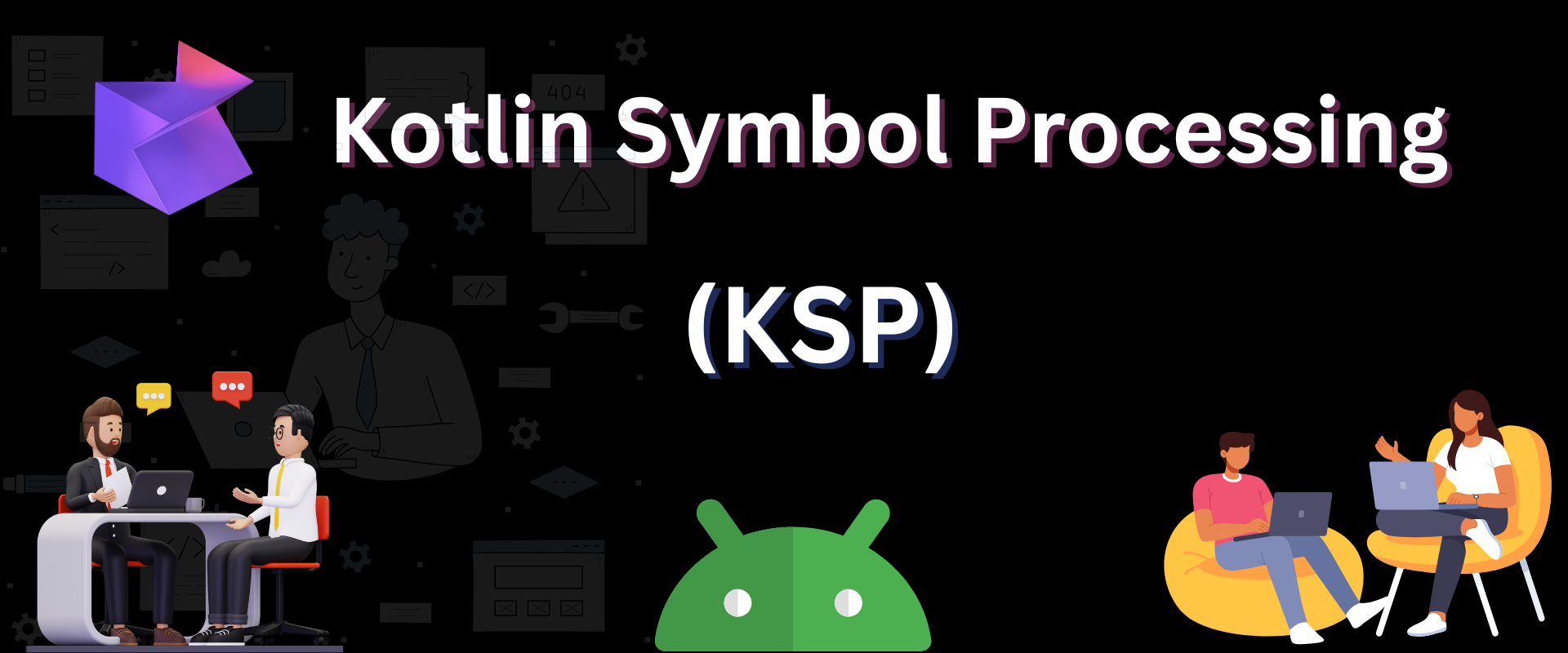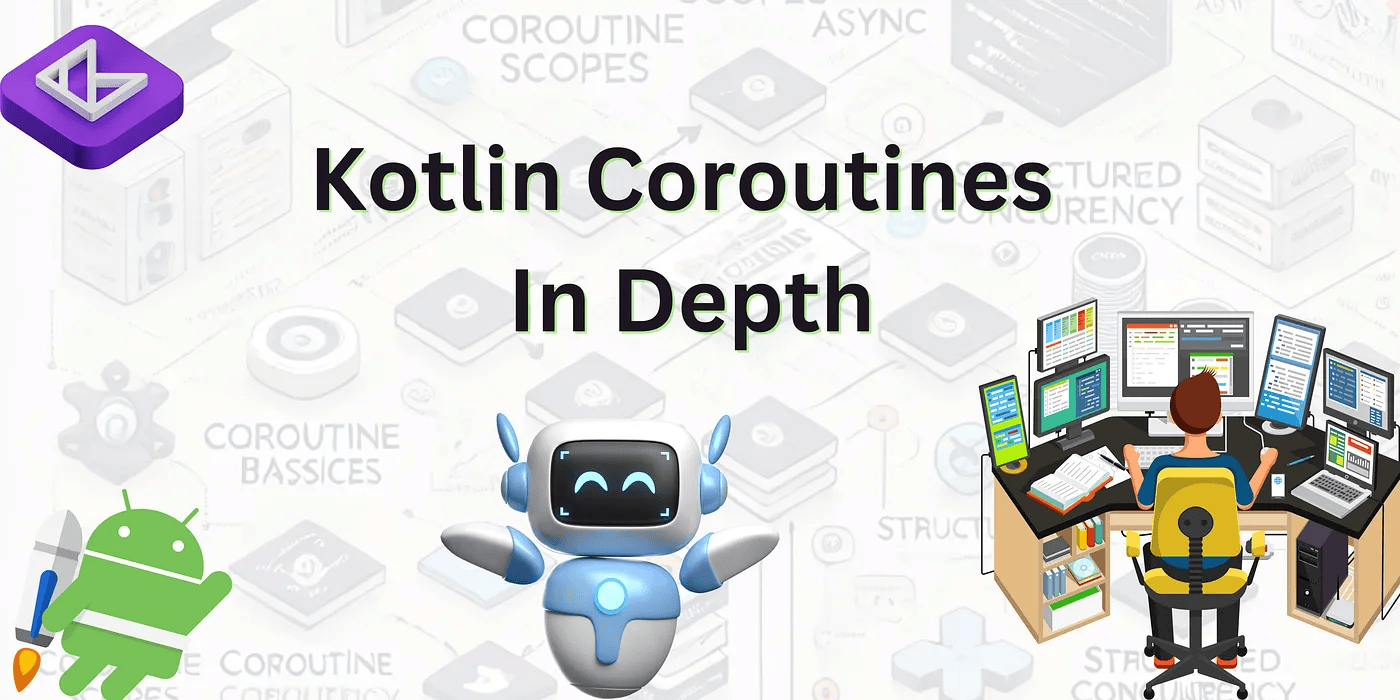Kotlin Symbol Processing (KSP)

If you’ve ever used Java’s Annotation Processing Tool (APT), you probably know how tricky things can get when you mix it with Kotlin. From missing Kotlin-specific features to slower builds, the developer experience hasn’t always been smooth.
That’s where Kotlin Symbol Processing (KSP) comes in — a powerful, modern tool built specifically for Kotlin. Designed by Google, KSP makes code generation faster, cleaner, and fully Kotlin-aware. Whether you’re working with libraries like Room, Moshi, or Dagger — or building your own custom annotations — KSP can save you a lot of time and boilerplate.
In this blog, we’ll explore everything you need to know about KSP — from what it is and why it’s needed, to how it works behind the scenes. We’ll also look at how it compares to KAPT, dive into real-world examples, and even see how it fits into Kotlin Multiplatform projects.
What is Kotlin Symbol Processing (KSP)?
Kotlin Symbol Processing (KSP) is a powerful tool developed by Google that helps you analyze Kotlin code at compile time and generate new code automatically — such as interfaces, data classes, factory methods, or even complete APIs.
You can think of KSP as a Kotlin-friendly replacement for Java’s Annotation Processing Tool (APT) and Kotlin’s KAPT. While KAPT converts Kotlin code into Java stubs before processing, KSP works directly with Kotlin code, making it faster, cleaner, and more efficient.
KSP is built specifically for Kotlin and offers a smarter way to generate code during the build process. It scans your project’s code and produces additional source files as needed — helping reduce manual work and avoid boilerplate code.
Key Highlights of KSP:
- Understands Kotlin deeply — including advanced features like
extension functionsandsuspend functions. - Seamless code generation — works great with KotlinPoet, a library to generate Kotlin code (instead of JavaPoet).
- Faster builds — up to 2x faster than KAPT.
- Modern and safer API — with less boilerplate and more Kotlin-style design.
- Supports both Kotlin and Java code — useful for mixed projects.
- Great for Multiplatform development — works well across different platforms like Android, iOS, and desktop.
The Problem with KAPT (Kotlin Annotation Processing Tool)
KAPT was built as a bridge to use Java annotation processors in Kotlin. But it has some big limitations:
- Converts Kotlin to Java stubs first
- When using KAPT, your Kotlin code is first turned into incomplete Java code (called stubs) just to make it readable by Java-based processors.
- These stubs don’t fully capture the power of Kotlin.
2. Loss of Kotlin-specific features
- Important features like
suspend functions,inline functions, andextension functionsare not preserved properly in the stubs. - This can break or limit functionality when you’re building advanced libraries (like Room, Moshi, or Dagger).
3. Builds become slower
- Because of the extra step of generating Java stubs, the compilation process becomes slower and less efficient.
4. Not ideal for modern Kotlin development
- KAPT was designed for Java-style processing, not Kotlin’s syntax or flow. So it’s not a natural fit for Kotlin-first development.
How KSP Solves These Problems
Kotlin Symbol Processing (KSP) is built from the ground up for Kotlin. It removes the need for stubs and works directly with Kotlin code.
Here’s how KSP makes things better:
- Direct Kotlin Code Access
- KSP reads and understands actual Kotlin source code — no conversion to Java stubs needed.
- This means it gets the full picture of your code, including
suspend,inline,extension, etc.
2. Understands Kotlin deeply
- KSP knows how Kotlin works internally. It’s aware of Kotlin’s unique features and syntax, so your tools and libraries work correctly and efficiently.
3. Cleaner and safer API
- The API provided by KSP is written in Kotlin and follows Kotlin best practices. It’s easy to use, less error-prone, and doesn’t require boilerplate code.
4. Faster builds with incremental processing
- KSP supports incremental compilation, which means it only processes files that have changed — significantly reducing build times.
5. Supports Kotlin Multiplatform Projects (KMP)
- KSP works across platforms like Android, iOS, and desktop. It’s a great choice if you’re building Kotlin Multiplatform libraries or apps.


